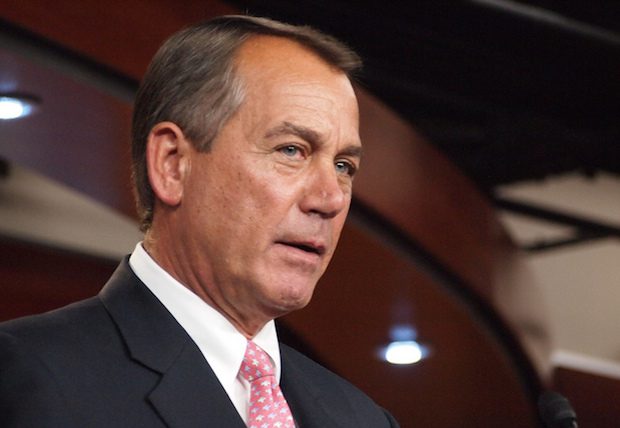Boehner and the “Anti-War President”

Politico reports on some of the Speaker’s recent comments:
Speaker John Boehner called President Barack Obama an “anti-war president,” and said the world is “starving for American leadership.”
I briefly criticized this on Twitter earlier. As I thought more about it, it occurred to me that Boehner’s remarks include almost everything wrong with the way Republican hawks talk and think about foreign policy. We have the obsession with ill-defined “leadership” as some sort of cure-all. Boehner assures us that if America “leads,” “our allies in the region would be tickled to death and would be happy to join a coalition.” It doesn’t seem to occur to Boehner that our so-called “allies” are not doing very much to contribute to a coalition effort because the U.S. is already offering to do almost all of the work at our expense for them. Then there are the dishonest misrepresentations of past or current policy. Obama is anything but an “anti-war president.” His record of starting two unnecessary wars and escalating a third should make clear. That doesn’t include the strikes that Obama has ordered in many other countries. When Boehner calls Obama an “anti-war president,” he is obviously lying, but he is also making clear that under his definition of leadership the U.S. ought to be fighting even more wars more aggressively than it already is.
We can also recognize the presumption that action should always be preferred to “sitting on the sidelines.” Boehner probably can’t imagine that the U.S. has no interest in embroiling itself more deeply in the internal conflicts of other countries. “America has to lead,” and by this he means that the U.S. has to keep joining unnecessary foreign conflicts. Finally, there is the boilerplate complaint about a lack of strategy while refusing to offer anything that might resemble one. There is nothing cheaper, easier, or less meaningful than to say that there isn’t a strategy. It might or might not be true to say that the U.S. has no coherent strategy in the region, but as criticism it is utterly useless unless the critic explains what he thinks ought to be done. This is what passes for “serious” foreign policy discourse at the highest levels of government. No wonder our foreign policy record in recent decades has been so poor.
Comments